So, time for another attempt at reaching the summit of the Onslows auction. There was certainly a fair amount left out of my last post. Not least this Lander poster, which I am contractually obliged to reproduce on the blog once every few months.
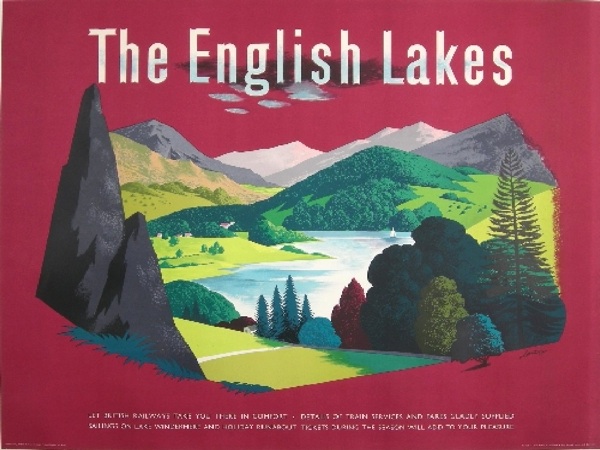
Eric Lander, est. £700-1,000
This time it gets in because of the rather juicy estimate. Perhaps Lander is now becoming the new Tom Eckersley, perhaps everyone wants their sitting-room to look just like mine. Who can tell.
Elsewhere, there is also this McKnight Kauffer, which is interesting because it’s not one which comes up very often in auctions or in books, and is also very fine in its Bloomsbury-ish kind of way.
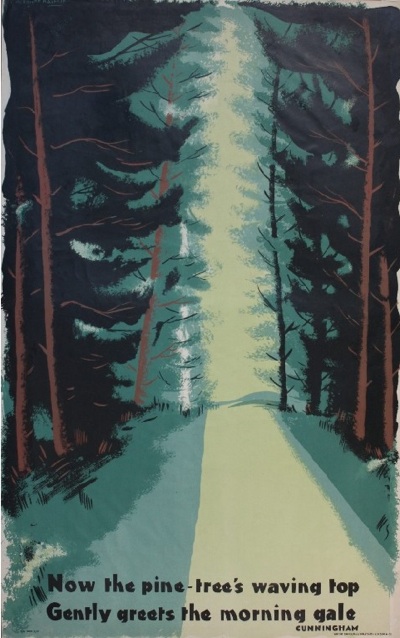
McKnight Kauffer, 1932, est. £200-300
It has a pair, or companion too.
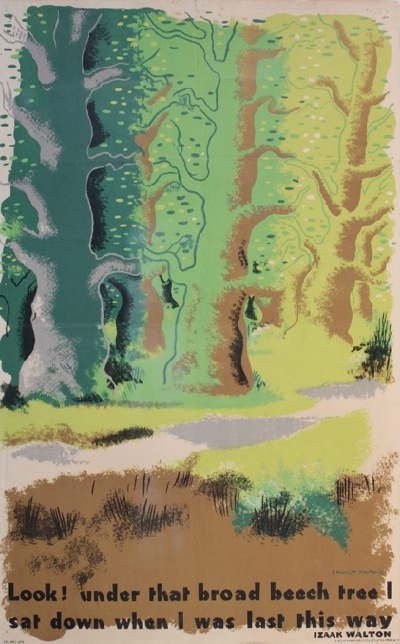
McKnight Kauffer, 1932, est. £200-300
There are a couple of other unexpected London Transport productions as well, like this poster celebrating London’s Statues (which I assume was once one half of a pair poster).
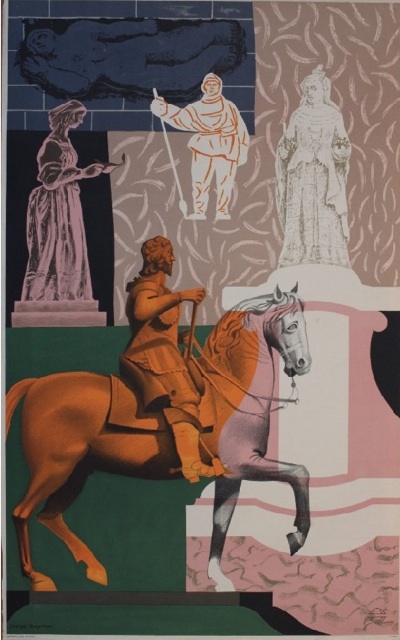
George Chapman, 1955, est. £100-150.
I’ll be interested to see what that goes for, at least in comparison to the Henrion. They both have the same estimate, but there’s no doubt in my mind that the Henrion is a much better poster, even if it is slightly un-nerving to live with. Am I right though? There’s only one way to find out…
I also like this little Herry Perry too.

Herry Perry, 1934, est. £100-150.
While this Hans Unger is, I know, a railway poster, it feels more as though it belongs with this batch instead.
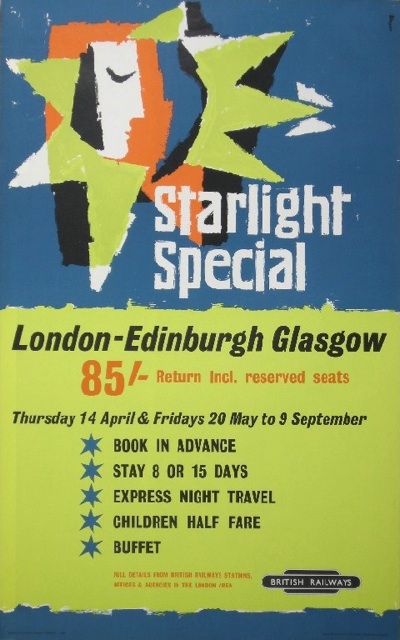
Hans Unger, 1960, est. £70-100
Unger also designed this undated Ideal Home poster.
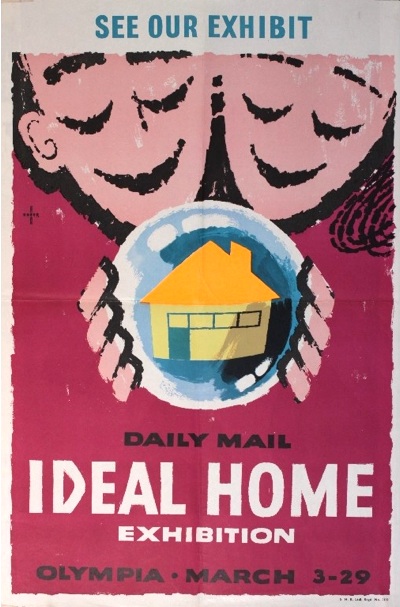
Hans Unger, est £50-100
But the main category which was left out of last week’s post is World War Two posters. As usual with Onslows, there is a good selection up for auction (there are also a smattering of First World War ones in there too but I can’t warm to them I’m afraid).
Probably the best-known of them is this Abram Games design.
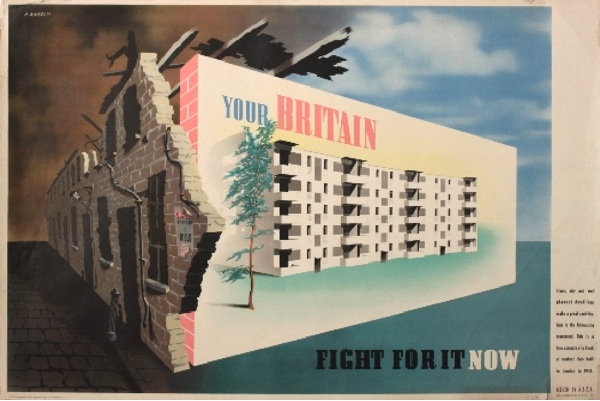
Abram Games, 1942, est £700-1,000
‘Your Britain – Fight For It Now’ is one of the most famous series of posters produced during World War Two, and are worthy of a blog post all to themselves one of these days, because their fame and constant reproduction gives a slightly misleading view of British propaganda during the war. But that’s another story for another day.
They also have an air of glamour about them for having been banned, as the Onslows catalogue relates:
Along with two other similar posters by Games this poster design was criticised by the War Office and withdrawn after initial distribution to the Army and display at the Harrod’s poster exhibition . This is a rare poster and is the only copy we have offered for sale.
Now I had always been under the impression (and have posted accordingly on here) that it was only one of Games three posters, that of Finsbury Health Centre below, which had been banned.
Allegedly Churchill objected to the portrayal of the child with rickets, calling it libellous on the state of Britain and insulting to the serving serviceman to say that these were the conditions prevailing in his home country.
But I might be wrong, so please do get in touch if you can clear this up one way or the other.
There are also a nice selection of Dig for Victory posters. This, my favourite, comes up twice.
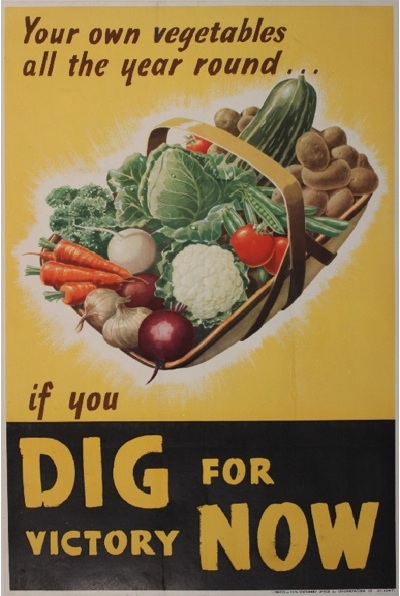
Norman Wilson, 1940, est £200-300
So there’s no excuse for not having a copy. Imagine how enticing that cornucopia of vegetables must have looked while almost everthing else was rationed.
I’m sure there are plenty more posters I should have included in here, but I’ve nearly exploded my brain just getting this far. So if you’ve got anything to add, the comment box is below and I’d love to hear about it. Now, if you’ll excuse me, I’m going to lie down.
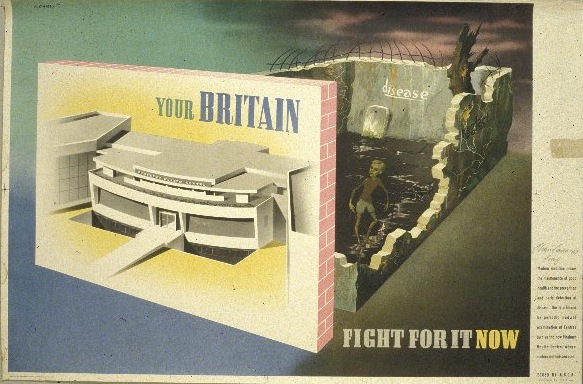
Dear Quad Royal,
Yes, re Abram’s poster, you are correct! The Finsbury Health one was the only banned poster of the 3. Thanks for all the great blogs.
Best wishes,
Naomi
Estate of Abram Games
Thank you not only for the kind words, but also for clearing that up definitively!
The whole thing is once again proof that banning something almost never results in it disappearing, and most of the time has the exact opposite result.
Norman Wilkinson? Are you sure? Nobody else knows so, but that of course is no reason for it not to be…
Ah. Norman Wilson (sic) according to Onslows and other sources.
You are right and I have altered it.